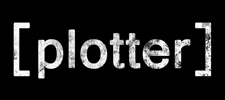Unfolding October 7th and its aftermath in Israel
(This lecture will be held in English language/ Vortrag in englischer Sprache)
Early Saturday morning October 7th, Hamas and other Palestinian terrorist organizations from the Gaza Strip initiated a surprise attack on neighboring Israel. During the first few hours of the attack, the Israeli mass media found itself in the dark with formal traditional sources inaccessible or uninformed. However, by using non-traditional reporting techniques, the Israeli media succeeded in making sense of the happenings early on and played an important role in informing civilians and security forces alike on both the big picture and the specific details of the attack. Indeed, the media served as one of the main sources of information for civilians and security forces, enabling them to make informed real-time life-saving decisions.
In the aftermath of the attack, Israeli society found itself in a complex situation that included a war in Gaza, hostages, evacuees from the South and North of Israel, international pressures and boycotts, an escalation of fighting on multiple fronts, and the economic costs of war. These complexities serve as an additional layer to the highly engaged political debate in Israeli society that has seen mass demonstrations and five national elections in the past five years. Indeed, it seems Israelis are currently debating their most fundamental beliefs and ideas.
This lecture will focus on the Israeli media and the role they played in the first hours of the attack, and on the aftermath of the attack in Israeli society.
Prof. Dr. Baruch Shomron is the Israel Professor in Communication Science at the Department of Communication at Johannes Gutenberg University Mainz. His research focuses on the relationship between media usage, representations, and access, and their relation to justice, human rights, and capabilities, especially regarding marginalized populations. He has published close to a score of studies in leading scientific journals examining the media opportunities of various groups such as Israeli Arabs, ultra-Orthodox Jews, migrants and refugees, as well as people with various health conditions. His co-authored book: "Digital Capabilities: ICT Adoption in Marginalized Communities in Israel and the West Bank" was recently published by Palgrave Macmillan.
+++
Der Anstieg des Antisemitismus und die damit einhergehenden gesellschaftlichen Entwicklungen in der bundesdeutschen postmigrantischen, postnational-sozialistischen und postkolonialen Gesellschaft erfordern tiefergehende Analysen:
Welche gesellschaftlichen Dynamiken liegen der neuen Qualität des Antisemitismus zugrunde? In welchem Verhältnis stehen Rassismus und Antisemitismus, Zionismus und Kolonialismus sowie Antisemitismus und Antizionismus? Welche Bedeutung haben der 07. Oktober und dessen Folgen für jüdische Communities in Deutschland? Wie sehen effektive Konzepte zur Bekämpfung des Antisemitismus aus? Welche Potentiale und Grenzen haben Aufklärung und Bildung? Diesen und weiteren Fragen will sich die Ringvorlesung aus interdisziplinärer Perspektive widmen.
Die Ringvorlesung wird gefördert aus Landesmitteln NRW bzw. aus dem Fonds zur Bekämpfung von Antisemitismus und findet in Kooperation mit dem Bündnis gegen Antisemitismus Köln und dem AStA der Universität zu Köln statt.
Ringvorlesung: "Nie wieder" ist jetzt? Antisemitismus seit dem 7. Oktober
https://blog.uni-koeln.de/niewiederistjetzt/
Veranstalter:
Department Erziehungs- und Sozialwissenschaften
Ort:
Hörsaal H112 (IBW-Gebäude)
Humanwissenschaftliche Fakultät
Herbert-Lewin-Str. 2
50931 Köln
